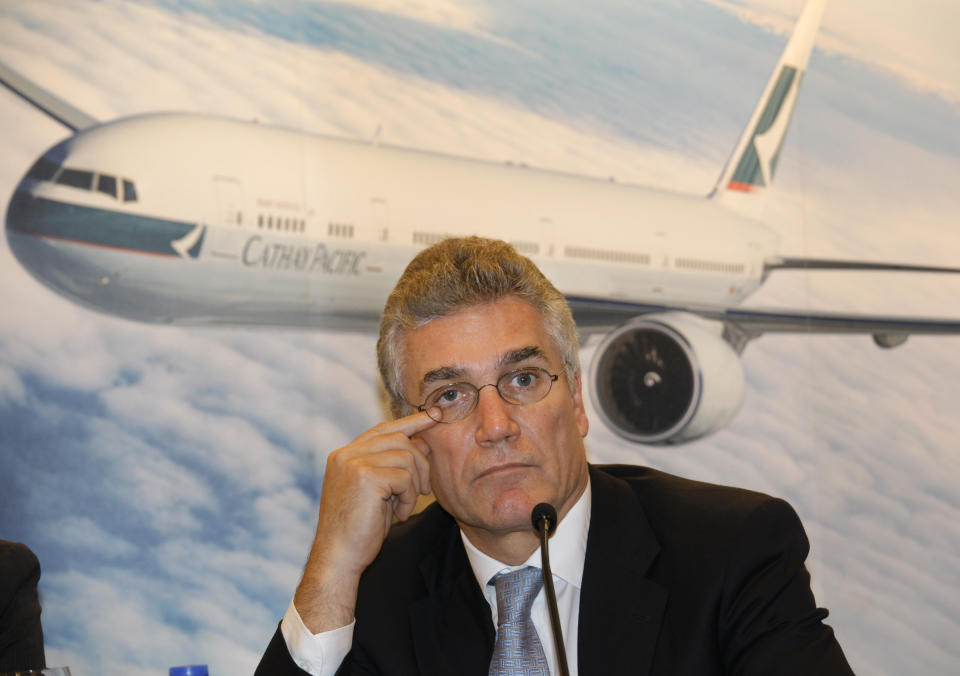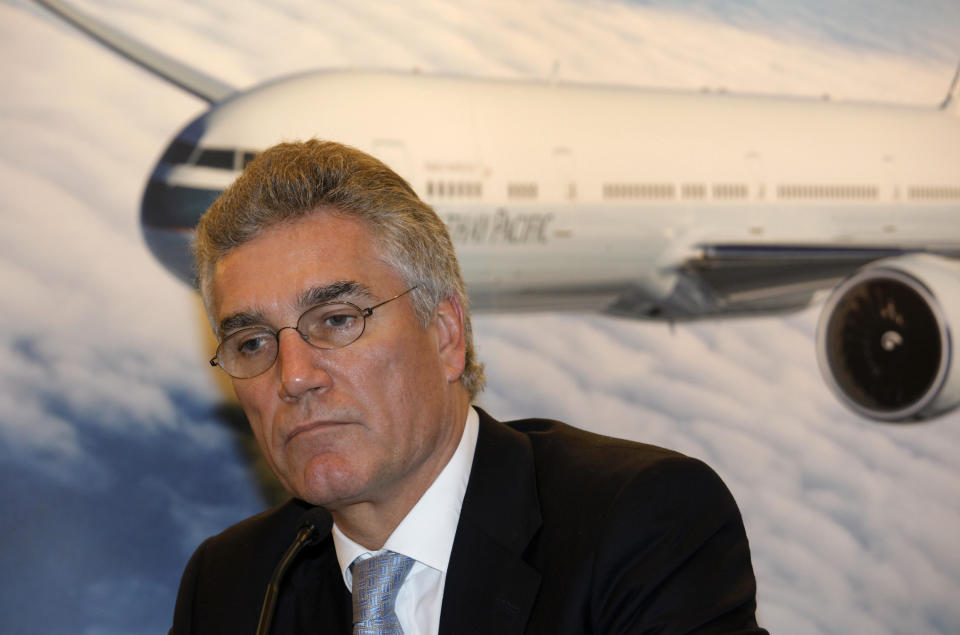HK's Cathay says 2011 profit dives on fuel prices
HONG KONG (AP) — Cathay Pacific Airways, Hong Kong's biggest airline, said Wednesday that profit fell 61 percent last year, hurt by persistently high jet fuel prices and weakness in the world's major economies.
The airline warned of a challenging outlook for 2012 as it posted a profit of 5.5 billion Hong Kong dollars ($709 million) for 2011, down from 2010's record HK$14 billion. The 2010 profit which was boosted by some one-time gains. Earnings per share fell to HK$1.40 from HK$3.57.
A "double whammy" of steep fuel prices and slumping cargo demand hit profits, Chairman Christopher Pratt said. He said 2012 is "looking even more challenging" than 2011 because of uncertainties including weakness in Europe and the United States, an unsettled Middle East and a forecast slowdown in China.
Cathay said high prices for jet fuel — its biggest expense at more than 40 percent of total costs — had a "significant effect" on operating results.
Fuel costs rose by HK$12.5 billion, or 44 percent, in 2011 from the year before, reflecting both higher jet fuel prices, which rose to an average of $130 a barrel, and that it flew more routes. The airline managed to offset some of that with a HK$1.8 billion profit from fuel hedging contracts, which cover about 20 percent of its fuel costs.
"We worry about high oil prices," said Pratt. "Any increase in the cost of fuel eats into our profitability in a very, very direct way."
Cathay executives said fuel prices have risen further but said that deliveries of new, more efficient aircraft over the next few years will help bring down the fuel bill.
High fuel costs also hurt profitability at its air cargo division, as fuel surcharges weren't enough to cover the gap.
The air cargo division, which accounts for 26 percent of revenue, shipped 8.6 percent less freight last year. Demand for air cargo shipments from Cathay's two biggest markets, Hong Kong and mainland China, started falling in April and remained weak for the rest of 2011, buffeted by the slumping global economy that cut consumer demand for electronics and other Asian manufactured goods.
The company said European demand was particularly weak. The division also faced increased competition from Shanghai-based airlines.
Air cargo shipments through Hong Kong were also hit by the devastating earthquake and tsunami that struck Japan in March 2011. The tsunami destroyed a swath of factories producing auto and high-tech components in northern Japan, disrupting manufacturers that relied on shipping those parts through the city for use in China.
Natural disasters and political instability cut travel demand to some of Cathay's major destinations. Demand for travel to Japan was "heavily affected" by the tsunami and subsequent nuclear crisis, although it recovered by October. Flooding in Thailand and unrest in the Middle East also hurt demand for travel.
Cathay and its subsidiary Dragonair carried 27.6 million passengers last year, 2.9 percent more than in 2010, but the amount of seats filled fell by 3 percent as passenger growth failed to keep pace with added capacity.


